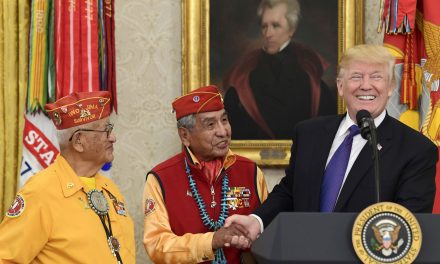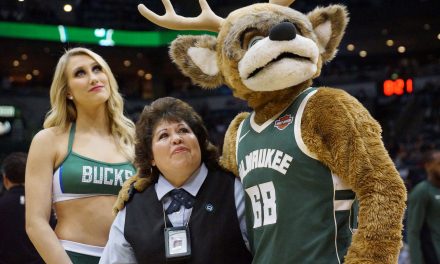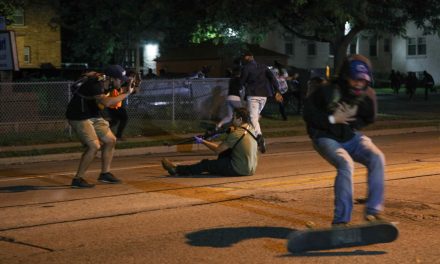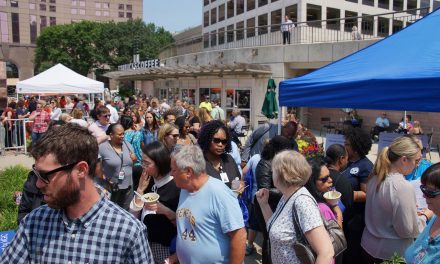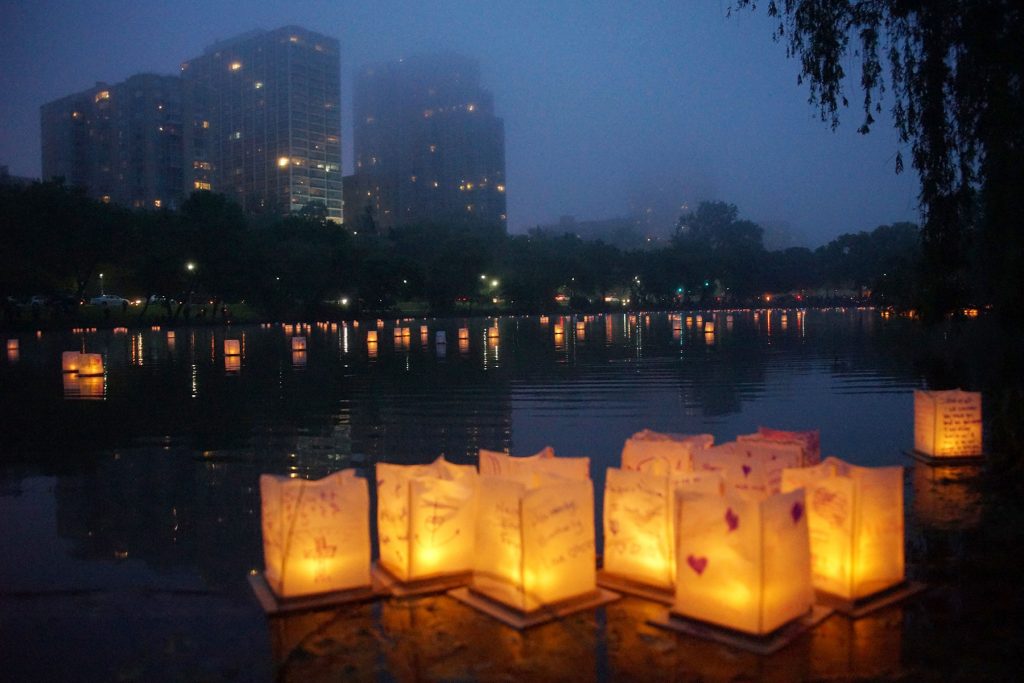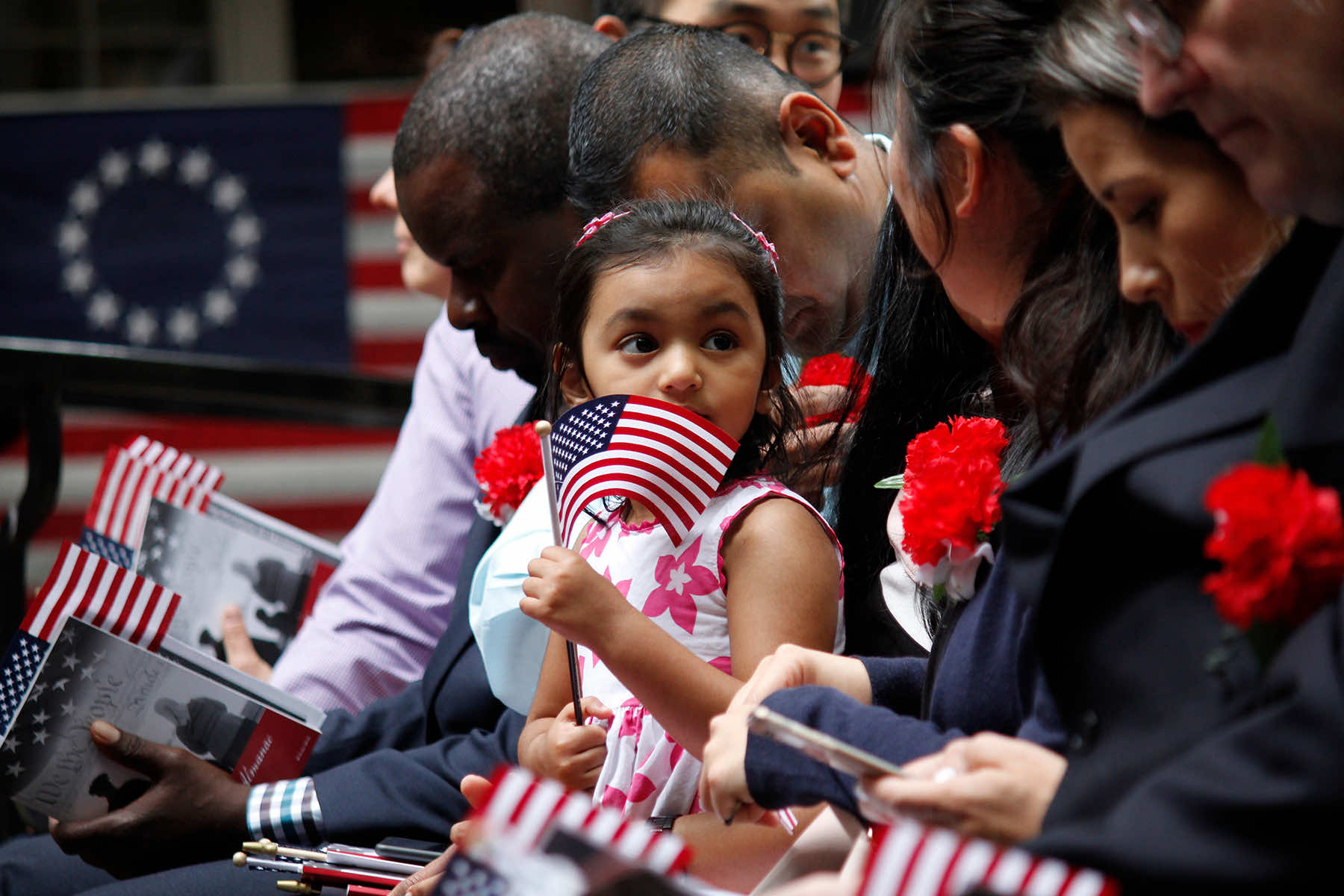
“The Constitution has a special love for you, a love for you that it will not have for me. Because the Constitution sees in you the spirit of the Founders, people who are willing to risk everything. People who are Americans by consent, not by an accidental birth like me. People who have the courage, and fortitude, and faith to forge your identity as Americans. The Constitution values that more than anything, because that’s the spirit that animated our founders.” – David E. Jones, Federal Judge in Milwaukee
A dear friend of mine became a U.S. citizen in November and I attended the oath ceremony. Given all that has been said and written about immigrants in recent years, I found it quite moving.
We arrived at the courthouse before the building was open and there was a line of expectant people waiting outside. Some were dressed up, some not; some had family with them and some did not. Most were in their 30s or older.
At 8 o’clock the building opened and we filed in through the courthouse security, leaving our cellphones behind, passing through scanners, then heading upstairs to gather outside a large courtroom on the second floor. A sign outside the room said: Naturalization.
Guests and family were then directed to a waiting room where a large flatscreen TV with no sound showed us the tables in the center of the courtroom where two court clerks were reviewing people’s documents. We were to wait there until it was time for the ceremony.
Meanwhile, here is what happened in the courtroom, according to my friend:
There were about a hundred of us seated on the benches. One by one, we were called to the tables where the clerks took our Green Cards and checked all our documents. They gave each of us a large manilla envelope. Inside was a little American flag and a handout that explained our rights and responsibilities as citizens and how to apply for a passport and register to vote. There was also a Welcome letter from President Biden. It began like this:
“Dear Fellow American, Today, you have earned a new title that is the greatest honor our democracy can confer – citizen of the United States of America. Congratulations, and thank you for choosing us and for believing that America is worthy of your aspirations. Every immigrant comes to America from different circumstances and for different reasons. But like previous generations of immigrants, including my own family, there is at least one common trait: Courage. It takes courage to leave behind everything you have ever known – your homes, lives and loved ones, and start a new life in another country.”
Eventually, friends and family were ushered into the courtroom and seated on the sides and in back. A group of international students were also brought in to witness the ceremony and seated off to one side.
“All rise,” said one of the clerks, and everyone stood as the judge came in; a middle-aged, dark-haired man wearing a black robe and glasses. He stopped behind a microphone in the center of the raised platform in front of his bench. He looked relaxed and not the least bit officious.
All eyes were on the judge. Every one of the immigrants was holding their little flag.
He began by sharing his name and then told us that his grandparents were immigrants who came to this country from Italy. “Like all of you,” he said, “they worked hard to be successful here.”
Then he said that there were 97 people from 38 different countries about to become citizens and that he was going to read the list of countries and people should raise a hand when they heard their country’s name.
He began with Albania and two people raised their hands. Then came Angola and a man raised both hands, then Armenia, and so on. When he got to Jamaica about seven people raised their hands and the judge said, “Today, Jamaica has the most.”
When he got to Morocco, an old woman in the front wearing a white hijab and dressed all in white slowly raised her hand. When he got to Uzbekistan, a few of the international students cheered. They were from Uzbekistan.
The last country was Yemen, and a man proudly raised his hand. Then everyone applauded.
The judge asked everyone in the room to stand and say the pledge of allegiance to the flag, which we did, with our hands over our hearts.
He then asked everyone taking the oath to remain standing and to raise their right hands and repeat after him.
“I hereby declare, on oath,” he began, and then paused for them to repeat, “I hereby declare, on oath,” and so it continued, in short phrases, call and response.
“(T)hat I absolutely and entirely renounce and abjure, all allegiance and fidelity to any foreign prince, potentate, state, or sovereignty, of whom or which I have heretofore been a subject or citizen;
“(T)hat I will support and defend the Constitution and laws of the United States of America against all enemies, foreign and domestic;
“(T)hat I will bear true faith and allegiance to the same; that I will bear arms on behalf of the United States when required by the law; that I will perform noncombatant service in the Armed Forces of the United States when required by the law;
“(T)hat I will perform work of national importance under civilian direction when required by the law; and that I take this obligation freely, without any mental reservation or purpose of evasion; so help me God.”
The judge looked out across the room and smiled. “Congratulations,” he said, “you are now citizens of the United States of America.” And everyone cheered.
In closing, the judge quoted a predecessor, a judge of some decades ago, who was known to tell new citizens, “I have no doubt that America is a better country now than it was a few minutes ago.”
Everyone applauded as he left the room.
One by one, the new citizens filed by the clerks’ tables, collecting their documents of citizenship and joining their friends and family outside the courtroom. We came back through security and the guards congratulated everyone as they returned our phones.
We spilled out through the courthouse doors into a bright autumn day and everyone started taking pictures, posing with their little flags. The joy was palpable. And maybe a sense of relief.
Then, just like that, it was over and everyone scattered in different directions: 97 new citizens of the United States of America.


